The media is full of stories about “systematic risk” to our financial system and efforts to put “firewalls” around potential contagions from spreading, but the idea of systematic risk with regard to social relations within a country and the real risk of ethnic cleansing within even developed countries is of equal importance. The recent release of documents on Adolph Eichmann are disturbing, echoing the horror that ambitious people placed in sensitive positions are “conscientiously” doing their job. The most perplexing aspect of Eichmann in Jerusalem is its study of human conscience, for Eichmann had a conscience, it was just not functioning in the expected way….
aa
As Hannah Arendt said “Intent to do wrong” was not, proved against him. He was not “morally insane” for in his own “muddled” way he distinguished between right and wrong, and even more frightfully, the results of psychological tests showed that he was not a “monster” but almost excessively normal. Think of all these institutions in the financial crisis and the lives they ruined who lacked “intent” to do wrong. As Arendt asserted, A root of evil can be uprooted, which she meant when speaking of destroying totalitarianism. However, the evil perpetrated by an Eichmann can spread over the face of the earth propagating like a “fungus” since it possesses no tangible or identifiable root.
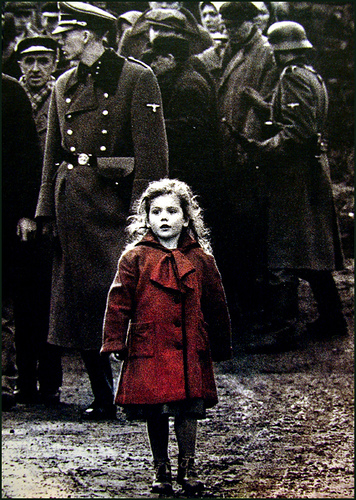
---This idea later appeared to receive some sort of retroactive justification in the often-quoted fact that during the trial over his involvement in the Nazi ‘final solution’, Adolf Eichmann claimed to have always acted in conformity with Kant’s categorical imperative. Of course, it would be implausible to take Eichmann as an authoritative interpreter of Kant, or of the whole tradition of the Enlightenment. However, it cannot fail to appear as striking that, in the Dialectic of Enlightenment, Adorno and Horkheimer advance an argument for what is essentially the same conclusion. This argument is based on a comparison between the works of Immanuel Kant and the Marquis de Sade. The comparison might seem paradoxical: on one hand Kant is known as the philosopher of ethical rigor and unflinching respect for the moral law. More than anybody else, he is perhaps the symbol of the tradition of the Enlightenment. On the other hand, Sade is known as the philosopher of dissolute transgression and the perverse....---Read More:http://www.columbia.edu/cu/polisci/pdf-files/apsa_invernizzi_accetti.pdf
Eichmann was not stupid; he knew but did not think what he was doing, not in the past and not in his trial in Jerusalem.According to Arendt, He contradicted himself constantly, but he did not lie; his conscience did not bother him; and he did not suffer from remorse: “He knew that what he had once called his duty was now called a crime, and he accepted this new code of judgment as if it were nothing but another language rule”. The string of bankers brought up to testify on Capitol Hill followed an identical pattern; Oliver North; Kissinger; the list is endless only the victims are identifiable.
According to Raul Hilberg, the “banality of evil”, Arendt’s phrase, did not exist among top decision makers who were conscious and aware of what they were doing. Hate was not even a necessary ingredient to ensure the smooth functioning of the persecution machine; it came down to technical problems and mundane business matters. Essentially, there was an active core of hatred, but it was draped around an effusive halo of indifference , the two combined to prove more than capable of fueling this enterprise of extermination.

Sean Penn. This Must Be The Place. ---Historian Gerald Reitlinger notes that 109 members of Berlin's Jewish council were deported to Theresienstadt, along with Rabbi Baeck, who was known to Eichmann's people as the fuhrer of the Berlin Jews, (according to historian Raul Hilberg). In fact, Rabbi Baeck survived to meet a surprised Eichmann, who had worked with him in Berlin. Historian Gerald Reitlinger quotes Eichmann as saying to Rabbi Baeck: "I understand now, a man who gets himself entered as dead, lives longer." 19 At Theresienstadt and in the ghettos, the Jewish councils put together official transport lists, which included the age, sex, profession and country of origin of Jews to be sent to death. This matter later became somewhat embarrassing at Eichmann's trial in Jerusalem, in 1961. According to Baron Philip von Freudigen of Budapest, a past member of the Budapest Judenrate who testified at Eichmann's trial, if the Jews had not followed the advice of their Jewish councils, about half of the Jews who were exterminated during the war could have saved themselves. In Holland alone, for example, 103,000 Jews -- collected by the Jewish councils -- were deported by train to the death camps. Only 519 returned.--- Read More:http://www.nizkor.org/hweb/people/r/rose-martin/p2wc.html
According to Hilberg, Eichmann’s initiatives in finding “pathways” through the bureaucracy were active and deliberate, and these built on “the all-encompassing readiness” of bureaucrats themselves who in turn found the German people as a whole not unwilling. Taken together, said Hilberg, these disclose a pointed malevolence in the policies and actions constituting the Holocaust that was not banal at all.
…Newly declassified tapes released by the German government reveal that Adolf Eichmann, one of the masterminds of the Holocaust, was supremely unrepentant about his role in the deaths of millions of innocent Jews and others during the Third Reich. In fact, Eichmann, from the presumed safety of underground exile in A
tina, brags about being part of the decision-making process that doomed millions….
---There are also other personal events that support Eichmann’s claim that he did not hate Jews. One major assertion for not hating Jews was that he had Jews in his family. It is reported that "he helped a half-Jewish cousin and a Jewish couple in Vienna for whom his uncle had intervened" (137). Arendt also states that Eichmann had a Jewish mistress in Vienna during his time there. If he truly hated Jews he would not have helped them escape or taken one as a mistress. Another major event that can maintain Eichmann’s claim that he had no grudge against Jews was when he chose to divert a train destined for an extermination camp. Eichmann openly disobeyed orders to send a train full of Gypsies and Jews to Riga and Minsk and instead sent them to the ghetto Lodz because he knew that death was awaiting them in the other camps. He did not get in trouble for his actions because he was protected by his superiors, however, he did not try this stunt again. Though Eichmann was not in the practice of saving Jews whenever possible, it seems that it is not fully accurate for people to assume that he committed these crimes because he hated them. What conclusion can be drawn about Eichmann’s feelings towards Jews? Was he really an Anti-Semite? Based on the evidence, it is apparent that even though Eichmann contends that he did not have a personal vendetta against Jews, he clearly acted in an Anti-Semitic manner.--- Read More:http://www.history.ucsb.edu/faculty/marcuse/classes/133c/133cproj/04proj/LozanoArendt61-042.htm image:http://www.nytimes.com/imagepages/2004/10/17/books/1017books-eichmann.html
….According to the Daily Mail, Eichmann said the biggest mistake he made was not killing all of the Jews. “We didn’t do our job properly,” he told a reporter in Buenos Aires after the war. “We could have done more.”Eichmann, who fled to Argentina and changed his name, found it difficult to remain silent about who he really was and what he’d done during the Hitler years. He repeatedly met with Willem Sassen and Eberhard Fritsch, two reporters with Nazi connections, and sat for regular interviews at Sassen’s home. When being interviewed, Eichmann used the alias Ricardo Klement.
In one tape, he boasts about being part of the Nazi decision making process. “I didn’t just take orders,” he said, contradicting his later testimony at a war crimes trial in Israel. “If I had been that kind of person, I would have been a fool. Instead, I was part of the thinking process, I was an idealist,” he said….Read More:http://morallowground.com/2011/04/13/newly-declassified-adolf-eichmann-tapes-we-could-have-killed-more-jews/
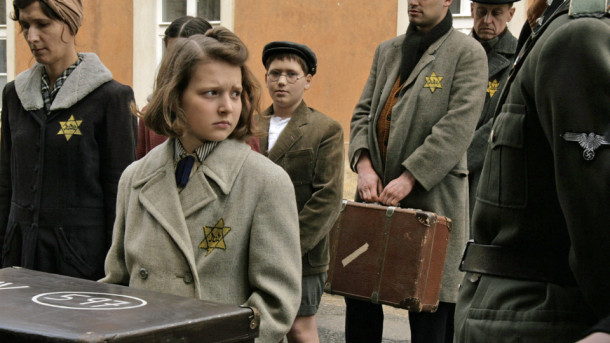
Inside Hanna's Suitcase. Alliance Films. ---Holding a significant position in the Nazi party became very important to Eichmann. If maintaining his position meant carrying out things he might normally not have done, then he was going to do it. Once he was informed about the final solution, his reaction was, "I now lost everything, all joy in my work, all initiative, all interest; I was so to speak, blown out" . This feeling did not last long, however. Once he attended the Wannsee Conference in January 1943 and saw the support behind this "solution", he cooperated one hundred percent. By not cooperating with the regime he might have jeopardized his position or the possibility of a promotion, and that was something he was not willing to do. Eichmann continuously boasted about all of his accomplishments. The fact that he was successful in the Nazi party made him feel worthy and gave him a reason to live. He was so proud of what he had achieved under the Nazis his boastings in Argentina eventually led to his capture. He said that he was, "fed up with being an anonymous wanderer between the worlds"--- Read More:http://www.history.ucsb.edu/faculty/marcuse/classes/133c/133cproj/04proj/LozanoArendt61-042.htm
As for Arendt’s concept of the banality of evil, Hilberg stressed that Arendt never understood “the pathways that Eichmann found in the thicket of the German administrative machine for his unprecedented actions. … There was no ‘banality’ in this ‘evil.'” Furthermore, Arendt separated “Jewish leaders from the Jewish populace” to account for Jewish cooperation in the destruction. However, Arendt’s response to Hilberg’s The Destruction of European Jewry was negative. Writing to Karl Jaspers in 1964, Arendt wrote: “His book is really excellent, but only because it is a simple report. A more general, introductory chapter is beneath a singed pig” . Hilberg does not let Arendt off the hook. Hilberg stated that Arendt reestablished ties with a lover from her days as a student, namely Martin Heidegger, and sought to rehabilitate him. Hilberg’s point is obvious. Read More:http://www.fpp.co.uk/Auschwitz/Hilberg/Meieron.html
ADDENDUM:
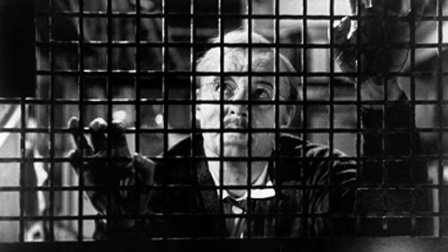
The Pawnbroker. 1964. Rod Steiger--What kept Eichmann loyal and unwavering was not hate but self-interest. He wanted people to believe the only reason he sent people to their deaths was because he was ordered to. Nonetheless that was not the only reason. In the end, Eichmann was a selfish man who obeyed his orders in hope of moving up in the ranks.--- Read More:http://www.history.ucsb.edu/faculty/marcuse/classes/133c/133cproj/04proj/LozanoArendt61-042.htm image:http://mubi.com/films/the-pawnbroker
Norman Finkelstein:Prior to publication of The Holocaust Industry Hilberg had himself denounced American Jews for resorting to the “blackmail weapon” against Europe. His disgust for the megalomaniacal Edgar Bronfman and the irredeemably vulgar Rabbi Israel Singer of the World Jewish Congress, which orchestrated the shakedown, is barely disguised in the recently updated Yale edition of his study.
The charges Hilberg and I independently leveled back in 2000 have since been vindicated. The $1.5 billion extracted from the Swiss banks bore no relationship to the pittance they actually owed, while Holocaust survivors have complained of receiving only a pittance of the fully $20 billion extracted from Europe in their names.
Recent revelations get worse. A report by Israel’s state comptroller found that Israel’s record on Holocaust compensation “is far behind Germany and other countries in Europe.” While Singer was denouncing secret Swiss bank accounts, he was squirreling away WJC monies in his own secret Swiss bank account and allegedly had also filched Bronfman’s piggy bank of a half million dollars….
…Hilberg didn’t truck in the pieties of what became the Holocaust industry that exploited the colossal suffering of Jews for political and financial gain. He rejected the notion that the Nazi holocaust sprang uniquely from virulent anti-Semitism and concomitantly maintained that “Jews were only the first victims” of the German bureaucracy’s genocidal juggernaut, which also targeted Gypsies and Poles, among others. He reckoned Jewish resistance to be negligible but Jewish cooperation (which however he distinguished from collaboration) to be significant, while he reckoned the total number of Jewish victims at closer to 5.1 million. Read More:http://www.normanfinkelstein.com/article.php?pg=3&ar=102
Read More:http://pathstoutopia.wordpress.com/2010/04/13/on-raul-hilberg-and-hannah-arendt/
———————————————————————————————-
Adolph Eichmann began his emigration plans using the Judenrate and Dr.Lowenherz in Vienna, the Nazis used the Jewish leaders in most European cities and the ghettos of the Eastern Occupied Territories and Poland to provide a census of their Jewish populations. These Judenrate were also required to provide lists of names — Jews to be transported to the death camps — and to provide Jewish police to enforce the collection of their people. It would not have been possible for the Nazis to have killed so many Jews in such a short time without the co-operation of the Junderate. This is an awkward historical truth, as revealed by historians such as Raul Hilberg and Hanna Arendt. As historian Raul Hilberg states:
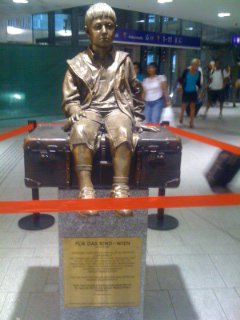
Hune at Martin Buber Dialogical Ecology:you walk through the streets of munich and you find buildings with little plaques that tell the story of this family or those kids who used to live there on apartment number such and floor number such and who on that date were picked up by soldiers and sent to extermination camps. they never returned to the apartment number such and floor number such after that one day. neighbors saw them being arrested for the crime of being jews. some buildings have the photos of those kids laughing by the window of that such apartment or playing ball by the entrance to that building. i am in vienna now and this monument to the deported jewish kids sits at the entrance to the main train station. there is a name listed under that kid. they all had names.
…”As time passed by, the Jewish councils became increasingly impotent in their efforts to cope with the welfare efforts of their task, but they made themselves felt all the more in their implementation of Nazi decrees. With the growth of the destructive function of the Judenrate, many Jewish leaders felt an almost irresistible urge to look like their German masters. In March 1940 a Nazi observer in Krackow was struck by the contrast between the poverty and filth in the Jewish quarter and the business like luxury of the Jewish community headquarters, which was filled with beautiful charts, comfortable leather chairs, and heavy carpets. In Warsaw the Jewish oligarchy took to wearing boots. In the Lodz ghetto “dictator” Rumkowski printed postage stamps bearing his likeness and made speeches which contained expressions such as “my children,” “my factories,” and “my Jews.” It would appear that the desire to live often overruled all moral considerations. Read More:http://www.nizkor.org/hweb/people/r/rose-martin/p2wc.html


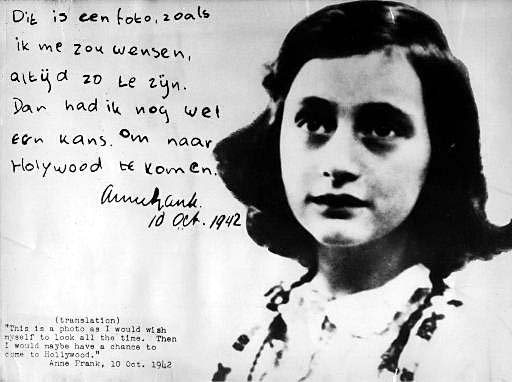



 COMMENTS
COMMENTS